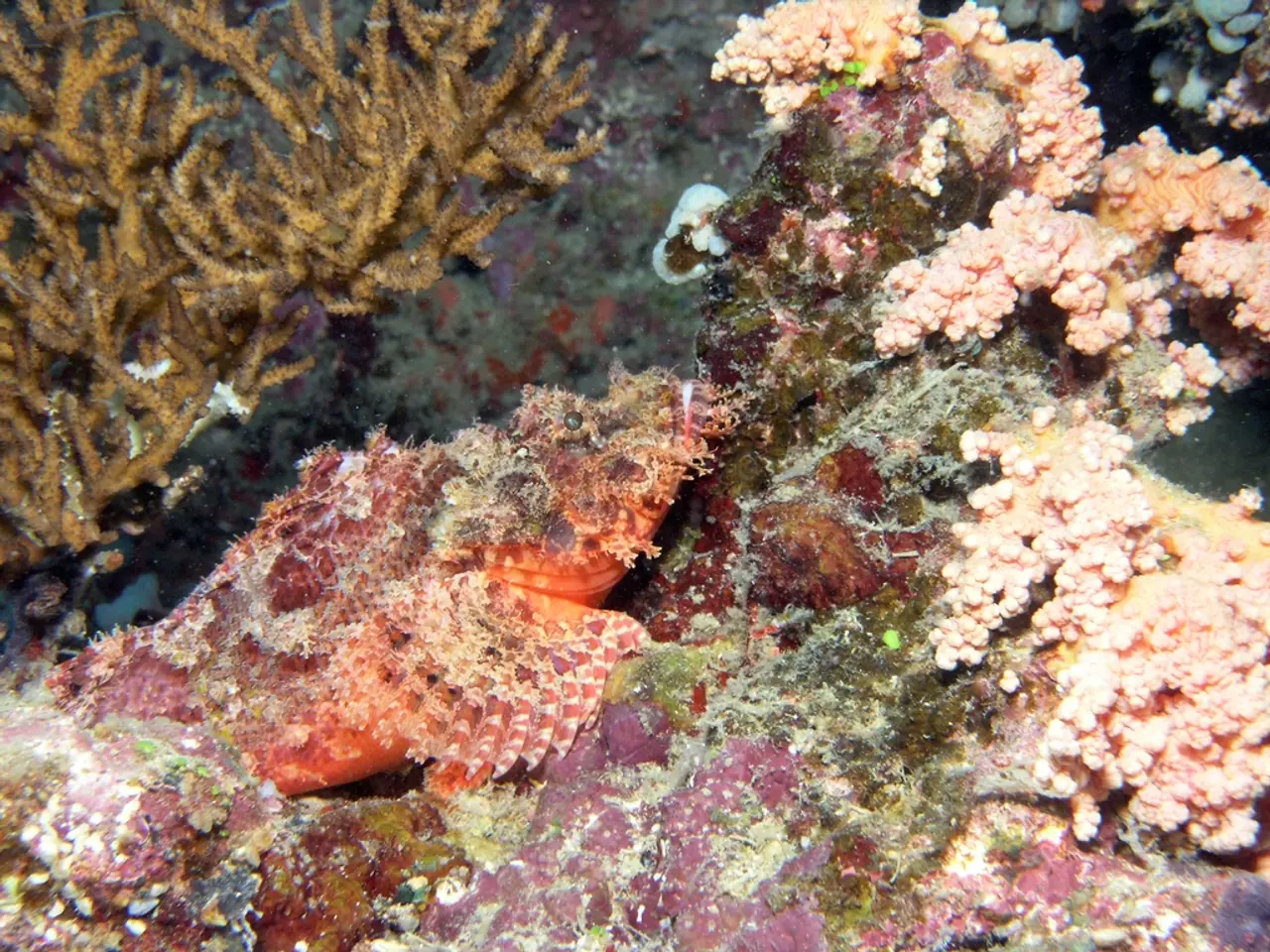Mediterranean Sea Faces Rapid Spread of Intrusive Marine Life, Sparking Alarm Among Scientists!
The Mediterranean Sea, a vibrant marine ecosystem, is experiencing a significant shift in its biodiversity due to the influx of invasive species from warmer waters. This phenomenon, known as tropicalization, has been accelerating since the opening of the Suez Canal in 1869 and has been further exacerbated by the expansion of the canal in 2015.
Species like the lionfish, a predatory fish native to the Indo-Pacific, are becoming more dominant, posing a serious threat to smaller fish populations. The lionfish, known for their venomous spines, are increasing in number and size in the Mediterranean.
The deepening and widening of the Suez Canal in 2015 has allowed more species to enter the Mediterranean, contributing to the ecological imbalance. Murat Draman, a diving instructor based in the Mediterranean, reported that the water temperature is as high as 29°C at a depth of 30 metres (100 feet). Water temperatures in certain areas are now averaging 32°C.
The Mediterranean's native species, accustomed to colder waters, are struggling to adapt to these new conditions. This struggle is evident in the declining populations of native species and the shift in the composition of marine life. The balance that has existed for centuries is now under threat.
The influx of invasive species has caused a change in biodiversity and pushed native species out of their traditional habitats. This could jeopardize local fisheries and tourism industries that depend on the health of native marine life.
Significant organizations and initiatives dedicated to the preservation of the Mediterranean and prevention of invasive species spread include the Italian NGOs Legambiente Sikelion – Ispica and Libera - Coordinamento Ragusa, the local conservation group "Pirati della Marza," the international NGO OceanCare (a UN advisory body for marine protection since 2011), and specialized Mediterranean marine mammal research projects led by experts such as Sabina Airoldi and Caterina Lanfredi.
Global initiatives, such as the United States' national ocean biodiversity strategy, aim to stabilize native species populations and promote marine health. Conservation International has emphasized the importance of well-enforced marine protected areas (MPAs) in preserving biodiversity.
Everyone can play a part in safeguarding the Mediterranean's future by supporting local marine protection initiatives or making environmentally conscious decisions. In regions with high levels of protection, fish populations are 27% larger, and household incomes are 33% higher than in areas with open-access waters.
As the Mediterranean Sea continues to warm, conservation efforts have never been more critical. The economies of surrounding coastal countries rely on these industries, making the threat to marine life a significant economic concern. The Mediterranean Sea is experiencing significant temperature increases, making it one of the warmest marine regions globally.
In conclusion, the Mediterranean Sea is facing a critical period due to the influx of invasive species and the resulting ecological imbalances. However, with continued efforts from local and global organizations, as well as individual actions, it is possible to preserve the Mediterranean's rich biodiversity and ensure a sustainable future for this vital marine ecosystem.
Read also:
- The Distinction Between Sexual Identity and Gender Identity
- Symptoms, Prevention Strategies, and Management Methods for Measles
- Climate Change Impact Mitigation in Health: Reducing the Disparity of the Health Sector's Exposure to Climate Change Challenges
- Increased measles cases Approaching 1,500 in the United States, with a new case detected in the Chicago metropolitan area.





